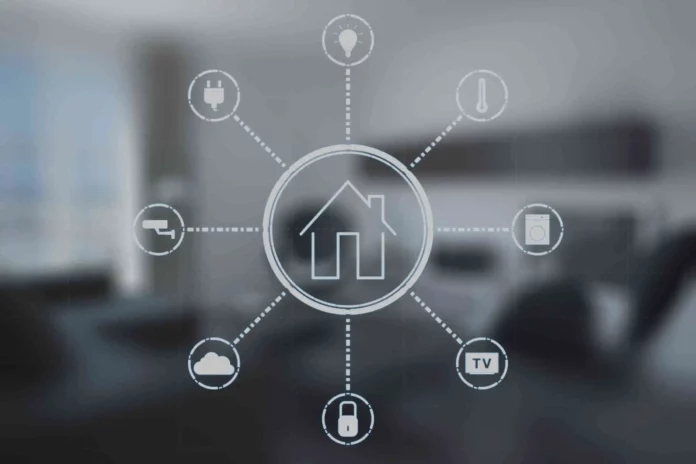The concept of a smart home, once relegated to the realm of science fiction, has become a tangible reality thanks to rapid advancements in technology. Today, smart home technology is transforming the way we live, offering increased convenience, efficiency, and security. As we look toward the future, innovations in smart home technology are set to further revolutionize our daily lives. This blog post explores the latest trends and future developments in smart home technology and how they are changing the way we interact with our living spaces.
1. The Evolution of Smart Home Technology
Smart home technology has evolved significantly over the past decade, moving from basic automation to sophisticated systems that seamlessly integrate into our lives. Here’s a brief overview of its evolution:
- Early Beginnings: Initial smart home technologies focused on simple automation tasks, such as remote control of lighting and appliances. Early adopters enjoyed the convenience of controlling their homes from a distance using smartphone apps or dedicated controllers.
- Integration and Interoperability: The next phase saw the development of more integrated systems that could connect multiple devices and platforms. Standardization efforts aimed to ensure that devices from different manufacturers could work together, leading to the rise of comprehensive smart home ecosystems.
- Artificial Intelligence and Machine Learning: Today’s smart homes are increasingly driven by artificial intelligence (AI) and machine learning. These technologies enable smart devices to learn from user behavior, anticipate needs, and offer personalized experiences. AI-powered systems can optimize energy usage, enhance security, and provide more intuitive control.
2. Key Innovations Shaping the Future of Smart Homes
Several cutting-edge innovations are at the forefront of transforming smart home technology and pushing the boundaries of what’s possible.
- Voice-Activated Assistants: Voice assistants like Amazon’s Alexa, Google Assistant, and Apple’s Siri have become central to smart home control. These AI-powered assistants enable users to manage their smart devices through voice commands, making interaction more natural and hands-free. Future developments will likely enhance voice recognition capabilities, support more complex commands, and integrate with a broader range of devices.
- Home Automation Hubs: Home automation hubs act as central control points for managing smart home devices. These hubs facilitate communication between devices, allowing users to create custom automation routines and integrate various technologies. The future will see more advanced hubs that offer improved compatibility, security, and user-friendly interfaces.
- Smart Appliances: Innovations in smart appliances are making everyday tasks more efficient and connected. Smart refrigerators can monitor food inventory, suggest recipes, and even order groceries automatically. Washing machines and ovens with smart features offer remote control, energy monitoring, and diagnostic capabilities. As technology advances, smart appliances will become even more intelligent, interactive, and responsive.
- Energy Management Systems: Smart home technology is increasingly focused on energy efficiency and sustainability. Advanced energy management systems can monitor and optimize energy consumption, provide insights into usage patterns, and suggest ways to reduce waste. Integration with renewable energy sources, such as solar panels, and smart grids will further enhance energy management capabilities.
- Home Security and Surveillance: Smart home security systems are evolving to offer more advanced features and greater peace of mind. Smart cameras, motion sensors, and doorbell cameras provide real-time surveillance and alerts. AI-driven security systems can recognize familiar faces, detect unusual behavior, and alert homeowners or authorities in case of emergencies. Future innovations will likely include improved image recognition, enhanced integration with emergency services, and more sophisticated threat detection.
3. The Role of Artificial Intelligence and Machine Learning
Artificial intelligence and machine learning are playing a pivotal role in advancing smart home technology. Here’s how these technologies are driving innovation:
- Personalization: AI algorithms can analyze user behavior and preferences to create personalized smart home experiences. For example, AI can adjust lighting, temperature, and music based on individual preferences and routines. Over time, these systems become more adept at anticipating needs and offering customized solutions.
- Predictive Analytics: Machine learning models can predict future behavior and optimize smart home systems accordingly. For instance, predictive analytics can help manage energy consumption by forecasting usage patterns and adjusting settings to maximize efficiency. Similarly, AI can identify potential maintenance issues before they become problems, allowing for proactive interventions.
- Enhanced Interactivity: AI-driven virtual assistants can engage in more natural and context-aware interactions. These assistants can understand nuanced commands, handle multi-step tasks, and offer personalized recommendations based on user preferences. The integration of natural language processing and conversational AI will continue to enhance the interactivity of smart home systems.
4. Challenges and Considerations
While the future of smart home technology is promising, there are several challenges and considerations to address:
- Privacy and Security: As smart home devices collect and transmit data, ensuring the privacy and security of this information is crucial. Vulnerabilities in smart home systems can pose risks, such as unauthorized access or data breaches. Manufacturers and developers must prioritize robust security measures, encryption, and regular updates to protect user data.
- Interoperability: Despite advancements, interoperability among different smart home devices and platforms remains a challenge. Ensuring that devices from various manufacturers work seamlessly together is essential for creating a cohesive and user-friendly smart home ecosystem.
- Cost and Accessibility: The cost of smart home technology can be a barrier for some consumers. While prices are expected to decrease over time, affordability and accessibility will remain important factors in the widespread adoption of smart home solutions.
5. The Future Outlook
The future of smart home technology holds exciting possibilities as innovation continues to drive progress:
- Integration with the Internet of Things (IoT): Smart home devices will increasingly integrate with the broader Internet of Things, enabling more seamless interactions and data sharing between various connected systems. This integration will create a more interconnected and responsive smart home environment.
- Advanced Sensors and Automation: Future smart homes will feature advanced sensors that provide more detailed and accurate data about the environment and occupants. Enhanced automation capabilities will allow for more sophisticated and adaptive control of home systems, improving convenience and efficiency.
- Sustainability and Green Technology: Smart home technology will play a key role in promoting sustainability and environmental responsibility. Innovations in energy-efficient systems, renewable energy integration, and smart waste management will contribute to greener and more sustainable living.
- Enhanced User Experience: The user experience in smart homes will continue to evolve, with more intuitive interfaces, seamless integration, and personalized interactions. Advances in virtual and augmented reality may offer new ways to control and interact with smart home systems.
Smart home technology is revolutionizing the way we live by offering increased convenience, efficiency, and security. As we look toward the future, innovations in voice-activated assistants, home automation hubs, smart appliances, energy management systems, and AI-driven solutions will further transform our living spaces. While challenges such as privacy, interoperability, and cost remain, the continued advancement of smart home technology promises a future where our homes are more connected, intelligent, and responsive. Embracing these innovations will lead to a more convenient, sustainable, and enjoyable living experience.


